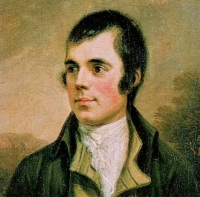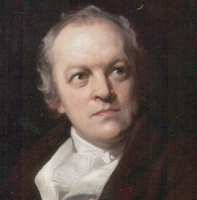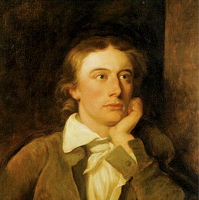- About Us
- Columns
- Letters
- Cartoons
- The Udder Limits
- Archives
- Ezy Reading Archive
- 2024 Cud Archives
- 2023 Cud Archives
- 2022 Cud Archives
- 2021 Cud Archives
- 2020 Cud Archives
- 2015-2019
- 2010-2014
- 2004-2009
 |
The Political Essence of Poetry |
“Poets are the unacknowledged legislators of the World.”
—from Shelley’s A Defence of Poetry
“Assert your individuality with one voice.”
—from Jeanette Winterson’s Art & Lies
Poetry, it must be accepted, comes from a different place than the art of writing fiction. The primary or superficial purpose of fiction is narrative or storytelling. The deeper function of fiction is to explore a theme or series of themes interwoven throughout the narrative. These themes are investigated and mapped out with movement toward a conclusion of some sort, and authors use a variety of techniques to develop this movement, including deconstructing the linear structure of narrative in trying to find a more natural and realistic representation of lived or experienced time. The themes an author presents in his or her narrative are usually brought out into the open, fleshed out, and brought to some type of conclusion within the confines of the text through the use of characters. Characters are created based on what is inherently natural in the human agent. Since human nature is wildly varied, characters are varied and so conflict or tension grows out of the interactions between them. Through conflict, themes inherent to human existence are grounded and the tension between characters provides action that forwards the plot and brings it to a conclusion. This conclusion, however, can leave the themes brought to bear by the characters’ relationships and actions open-ended, and the narrator may not provide the reader with answers. A narrative achieves its purpose when themes and questions of an insoluble nature are given voice but intentionally left open, for in life, so it should be in literature—there are only deep questions with no easy answers, if any at all. A narrative also attains its purpose when it introduces the reader to characters who are memorable, who are colored with the very essence of what it means to be human; and the nature of what it means to be human is something I will leave open ended here.
These themes are investigated and mapped out with movement toward a conclusion of some sort, and authors use a variety of techniques to develop this movement, including deconstructing the linear structure of narrative in trying to find a more natural and realistic representation of lived or experienced time. The themes an author presents in his or her narrative are usually brought out into the open, fleshed out, and brought to some type of conclusion within the confines of the text through the use of characters. Characters are created based on what is inherently natural in the human agent. Since human nature is wildly varied, characters are varied and so conflict or tension grows out of the interactions between them. Through conflict, themes inherent to human existence are grounded and the tension between characters provides action that forwards the plot and brings it to a conclusion. This conclusion, however, can leave the themes brought to bear by the characters’ relationships and actions open-ended, and the narrator may not provide the reader with answers. A narrative achieves its purpose when themes and questions of an insoluble nature are given voice but intentionally left open, for in life, so it should be in literature—there are only deep questions with no easy answers, if any at all. A narrative also attains its purpose when it introduces the reader to characters who are memorable, who are colored with the very essence of what it means to be human; and the nature of what it means to be human is something I will leave open ended here.
Poetry, on the other hand, is simultaneously intensely personal and fiercely political. The difference between poetry and fiction lies in language. In a sense, poetic language is all surface: its depth is found in itself, in its voice (what it says, and more, how it says it). Poetry changed dramatically with the rise of Romanticism; it became more thoroughly personal as well as political. Though poets through the ages have and continue to tell stories using characters, the early nineteenth century found the speaker’s voice to be identical with the poet’s voice, most specifically in the lyric. Furthermore, poets have always been engaged with the politics and even political figures of their day, even dedicating or writing their poems in honor of these men or women. The belief that poetry is something both intensely personal and political stresses the following idea: the poetic voice is political in tone, which means that poetry is the one literary genre that represents the human voice as profoundly real and wholly individual, unique to the speaker. The nature of what it means to be political and to be so in a (theoretically speaking) democratic sense is the right and opportunity to have your voice heard. Poetry as text and the speaker’s voice are political weapons in the endless struggle for justice and equality, in a word, for a fully realized democratic nation.
The belief that poetry is something both intensely personal and political stresses the following idea: the poetic voice is political in tone, which means that poetry is the one literary genre that represents the human voice as profoundly real and wholly individual, unique to the speaker. The nature of what it means to be political and to be so in a (theoretically speaking) democratic sense is the right and opportunity to have your voice heard. Poetry as text and the speaker’s voice are political weapons in the endless struggle for justice and equality, in a word, for a fully realized democratic nation.
Poetry is deemed unreadable by the masses because its language is personal and political, which is the greatest of ironies. Poetry then should be written by the masses since there are an infinite number of voices disguised and submerged in the notion of the masses. Poetry is the literary genre that emphasizes the point that the individual human voice will be heard and not drowned in the tumult of the mob; poetry is more revolutionary than any rebellion or governing political body because it creates a self, a body, that differs and removes itself from the larger body, the larger text, if you will, of the homogenized, oppressed human race. Poetry is deeply political and personal because the voice with which it speaks demands to be heard and subsequently, demands action and reaction. Poetry engenders a type of transcendence in the speaker in that it dignifies him through a separation from the rest of humanity.
Yet in dividing him from and raising him above the masses, poetry politicizes the speaker and endangers him, making him prone to becoming a figure of spectacle, even martyrdom. When this happens, poetry enforces and literalizes the nakedness, the isolated nature, of the speaker and of his voice, akin to John the Baptist’s “I am the voice of one crying in the wilderness.” Poetry is something written and spoken in a void; a darkness surrounds and even pervades the light of the language that is set down as the poetic text. Nonetheless, the light of the voice is the hope of all humanity, searching, struggling, embodying the quest for the freedom rendered in the terms justice, equality, and democracy. This separation, this possibility of becoming a scapegoat, unfortunately, is the price paid when the desire to be heard is the strongest passion in an individual because it is a fundamental part of our human nature. This passionate voice, however, is the true spirit of humanity, and if all humans held within them this passion to be heard and rebel in the name of freedom to the degree that poets past, present, and future have exhibited it, then all the voices would blend into one voice speaking in the quest for the fulfillment of the same universal, fundamental human rights and freedoms. And so, in this way, the poet would no longer speak alone nor suffer exposure to ridicule, hatred, or martyrdom for his open and profound expression and experience of humanity’s deepest needs and desires that are, in essence, both personal and political at once.
